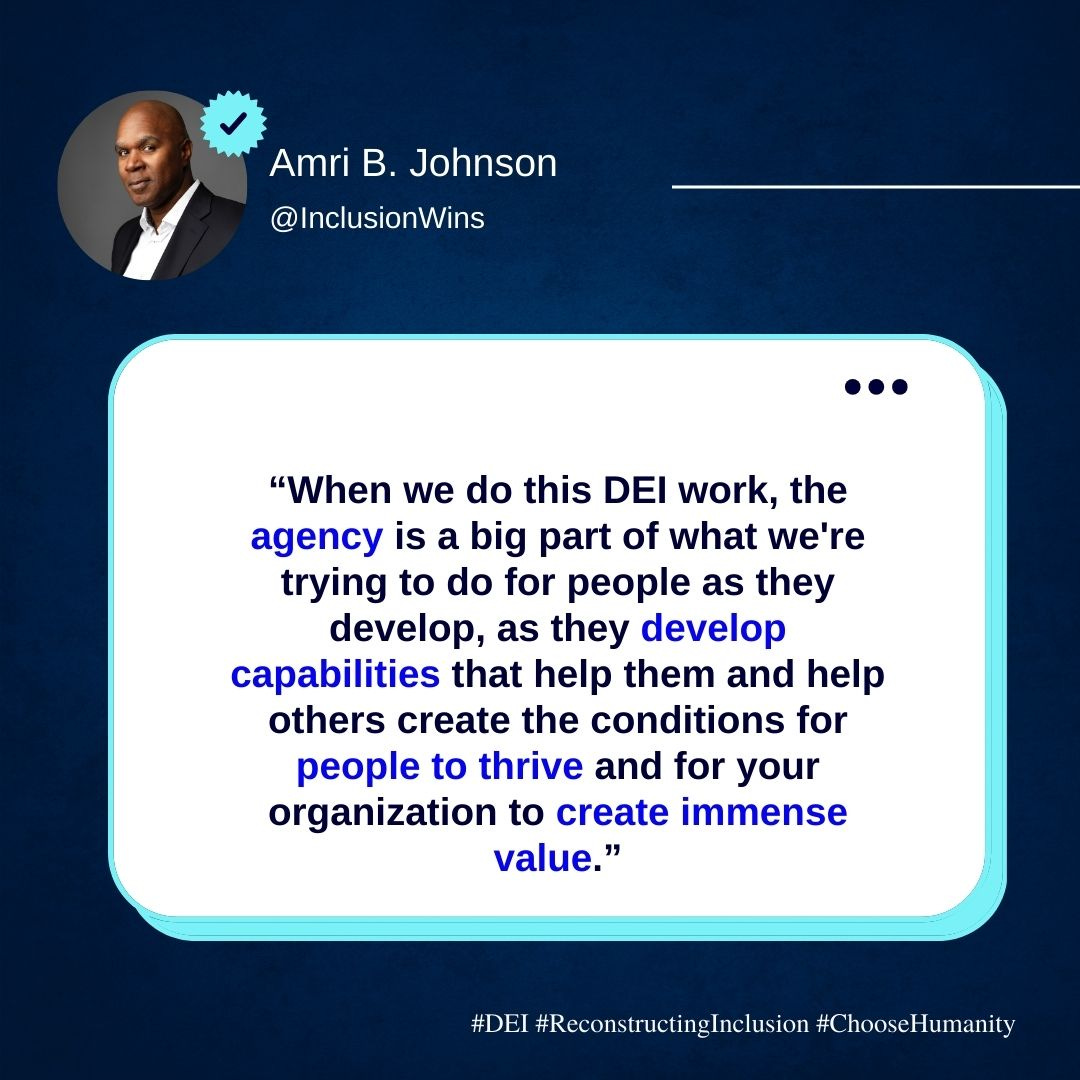Essentials of Co-creation
DEI Principles 3 of X

All is with.
All is co-existent.
All is interdependent.
All is agency.
All is We: We Root (for) Them (out).
All is With.
In organizational life, like in nature, all parts of a system affect one another at least indirectly. Plants don’t grow (at least not optimally) without essential elements in the soil. People only grow with people. It is impossible to grow without the influence of other people.
You don’t have to know this, but life is a much more fulfilling journey and work is a lot more empowering space when you do.
All is Co-existent.
There is a lot said about identity. Some have said that it is perhaps one of the most expensive “choices” we make in our human existence in a lifetime. Others have said that as our choices change, so do our identities.
When I moved to Switzerland in 2019, I made a choice that I started making when I met my Spanish-Swiss-born and raised wife, Martina, in 2016. My choices at the inception of our relationship were not altogether conscious, but they were in the realm of choice. And with those choices, I was also choosing a new identity.
Without the affinity with my wife, my identity would have shifted in different ways, including in relationships with existing people in my life and new ones that were likely to emerge.
Choice, affinity, and identity are all co-existent--colliding, connecting, and constantly reconstructing one another.
Digital, Diverse & Divided with David Livermore
All is Interdependent.
The magnetism (consider it karmic, spiritual, sensual, relational, cultural, linguistic, familial, convenient, or otherwise) that pulled me toward my identities today comes from an inseparable web of connection.
When co-creating a puzzle of organisational culture, you don’t get the pieces in a box with a picture on it, ready to assemble. The pieces emerge, and they begin to fit. And, even when you arrive at a picture that adheres to your expectations or traditions, even though it occurs as coherent, you cannot know. The pieces that are yet to be connected can dramatically shift the interpretations, expectations, and relationships people have of and with the puzzle.
In organisational culture, the puzzle is never complete and you can never know precisely how it will look. You can, however, create the conditions for increased probability that the picture will consistently amplify its brilliance.
That is, cumulative experiences, preferences, past choices, and how I have made meaning from the above all create a context that leaves me holding a collective identity that is shared with many and holds seeds that are hyper-connected to my so-called individual (one might say, unique (as we all are)) self.
All is Agency.
The notion of agency, for many, too often connotes an individual's capacity. Individual capacity as it relates to agency is partly accurate. Albert Bandura is widely known for his scholarship on self-efficacy, of which his theory of agency is central. He argues that agency is not exercised in isolation but within a network of social influences.
Agency is critical to developing our leadership capacity. Peter Senge states, “Leadership is the capacity of a human community to shape its future.” Individual agentic capacity is an essential aspect of leadership because without it, one’s ability to serve others for the sake of the “We” is stunted.
All is We: We Root (for) Them (out).
In chapter seven of Reconstructing Inclusion, I reference one of many interactions I had with a friend who happened to be a Rastafarian. He said to me, “Brother Amri, Jah want you to understand, you know. Jah want you to overstand. Jah want you to have Jah wisdom and love to overstand Babylon, you know?” I continue in the text, “At the time, I nodded my head fervently in agreement, not sure if I did over- or understand. However, after I left his presence, I thought, Wow, that is a powerful way to look at the world.”
“Babylon,” to many Rastafarians, is a contradictory and harmful worldview, not a simple disagreement. To my friend, it was an oppressive idea, one that could lead people to a mindset that separates God’s children from one another and the Heavenly Creator.
This self-righteous separation negates the idea of co-creation. We then place blame and erroneously believe we are independent of those we disagree with.
We are not.
The truth is that when we begin to see even views that are diametrically opposite to our own as complementary rather than contradictory, we can see something in ourselves that is inseparable from the so-called “other.”
That is, “We Root for ‘Them,’” while “We Root ‘Them’ Out.’”
I hope this was helpful. . . Make it a great day! ✌🏿
In this episode of the ‘Reconstructing Inclusion’ podcast, let’s discuss the current state and “the attacks” on Diversity, Equity, and Inclusion (DEI) and the need to redefine its contemporary frame. I talk about the concept of iatrogenic effects, drawing from the work of Ivan Illich, and its relevance in the DEI space. Why are self-reflection, intentional broadening, greater contact, and the promotion of agency in mitigating iatrogenic effects important in advancing the potential of DEI work?




